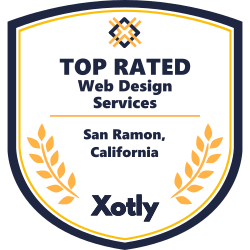CMS-based website: To micromanage the content on your portal, consider creating a CMS-based website. A CMS or Content Management System enables you to manage site content accurately without requiring technical expertise. Moreover, this is a fairly simple system which enables you to add, remove or modify images as well as edit text.
However, when you want to build a website as per exact specifications, then make sure you choose a CMS-based website for your business. Furthermore, this type of website is filled with dynamic content that requires regular updates. Among the different Content Management Systems, there are a number of them that are open source, examples being Joomla, WordPress, and Drupal. Such an open source CMS has a highly active community across the globe, which means that help is never too far.
How CMS is helpful for a website
It is vital for any business website to be adequately flexible in order to scale up or down, as well as update its content. For this, the designer needs to rely on just a few page templates, such as landing page, detail page or category page, and make them display dynamic content as per the database.
For instance, if a user browses an online store and scrolls through the Gardening section, the page template with a single category will show images and ads related to that area. Similarly, if the user goes to the section on Home Décor, category templates on the same will appear with updated content.
CMS Website Features
Here are some of the major features of a CMS website:
- Highly stable and secure
- Availability of multilingual support
- Free, flexible and fast
- Can be managed easily
- Amazing Support
- Feature rich and user-friendly
In addition, Many content management systems, particularly open-source ones, use MySQL and PHP in their development. In other words, The owner of a CMS-based website should have a basic understanding of PHP and MySQL. This will make you be able to understand how different basic elements of a CMS function.
Determining Factors for Choosing a CMS
Moreover, there are a number of questions which decide the type of CMS you need to choose:
Need for e-commerce– Does the website have to integrate with several systems? Does it need to get into sales or product databases?
Administration– Is there a need to set up multiple levels for site access? As an example, will there be certain users who could change parts of site structure, while others would be able to modify the content of a few pages?
Platform– Which is the development platform being used for building the website? Similarly, Questions related to this include information on the database from which content is being drawn, and the place where the CMS-based website is being hosted
Take the time to carefully decide the type of CMS website you require.
Discover a wealth of valuable content on various topics by exploring our extensive blog page.
